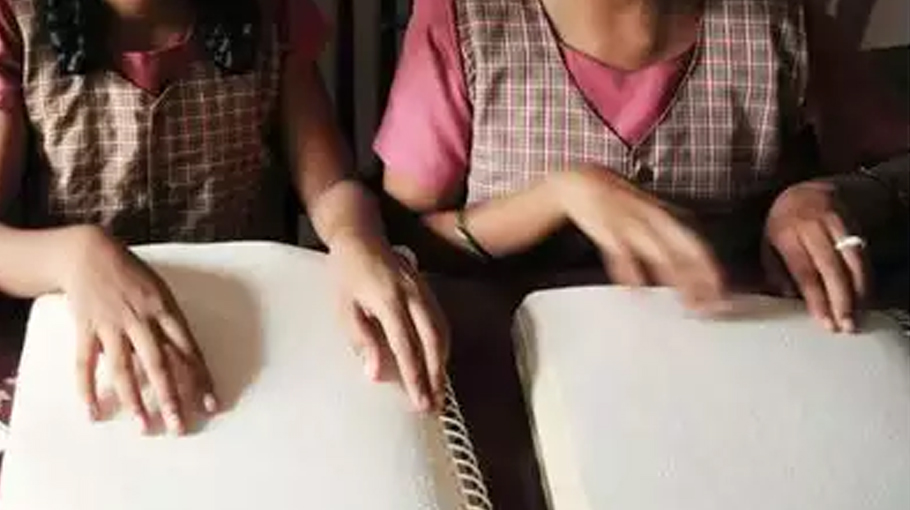Barriers faced by students with visual disabilities likely to hamper achieving SDGs

Visually impaired students pursuing higher education in Bangladesh are facing numerous obstacles in their studies due to lack of accessibility to technology and various types of contents.
The barriers faced by the students are likely to disrupt our target to achieve SDGs.
With the overall support of the Youth Engagement in Democracy (YED) project of Manusher Jonno Foundation (MJF) and technical assistance from Global Research and Marketing (GRM), Visually Impaired People’s Society (VIPS) conducted a study among visually impaired students studying in colleges and universities. According to the research report by VIPS, 75.36% of visually impaired students face barriers to purchasing assistive technology for higher education due to limited family income. Additionally, 92.96% do not receive accessible study materials, 91.55% believe there is a lack of skilled teachers, and 97% depend on others for online admission processes at universities due to lack of accessibility.
Furthermore, the absence of specific laws and policies on accessibility means that about 90% of government and private colleges and universities’ websites and digital services are not accessible. This poses participation barriers for visually impaired students.
On March 9, 2024 a meeting was held in the capital to inform stakeholders about the research report titled ‘Addressing the Challenges and Barriers Faced by Students with Visual Disabilities in Harnessing Technology for Higher Education: A Perspective from Bangladesh’. Following this, on June 27, 2024 a feedback meeting was held at the Liberation War Museum at Agargaon in the capital.
Professor Dr. Md. Sajjad Hossain, member of University Grants Commission (UGC), was present at the meeting as the chief guest.
Special guests included Dr. Muhammad Zafar Iqbal, author, teacher, and IT expert, and Bhaskar Bhattacharya, National Consultant (Accessibility), Aspire to Innovate (a2i) Project, ICT Division.
Honorable guest was Farzana Sultana, Project Officer, Manusher Jonno Foundation (MJF) at the meeting, which was presided over by Advocate Md. Mosharraf Hossain Mazumdar, President of VIPS.
During the feedback meeting on Thursday, there was a call for immediate measures to ensure the accessibility of websites and digital services of the government and private universities. The teaching process of teachers should be visually impaired students’ friendly.
It was emphasized that each university needs to establish and activate a resource center with assistive technology to visually impaired students’ friendly promptly.
Technology companies were urged to come forward in innovating assistive technology.
The discussants opined that there is no alternative to ensuring technology accessibility at all levels to achieve digital services for all citizens in building Smart Bangladesh. Awareness of this issue should be created at every level.
The discussants believed that it is urgent to eliminate customs duties and VAT on imported assistive technology through the determination of HS codes to make assistive technology accessible for visually impaired people. Government incentives are also needed for the innovation and research of assistive technology.
A demand was raised for the government to provide free laptops and smart phones to address the shortage of devices for visually impaired students.
The event was attended by visually impaired students, representatives of NGOs and INGOs, representatives of the government and private organizations, members of the VIPS executive committee, and caregivers of disabled individuals.




